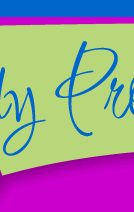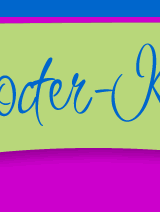|
Obviously THAT was the job for me. So I researched literary agency internships, landed an unpaid internship 500 miles away, moved, and got a job as a book store manager while I squeezed in as many hours as I could at my first agency. From there I worked my way up and eventually set out on my own in 2001. Along the way, I discovered that I really didn't have the chops to be a writer myself. I am truthfully a much more skilled editor and that suits me just fine.
Cindy: I love that story! Laura, what are some of your hobbies and interests?
Laura: It isn't all that interesting but truthfully most of my hobbies involve books and reading. I think a lot of us who have chosen careers in publishing did so because we were booklovers through and through. Even though I don't always get to choose what I read from day to day, that love doesn't really go away and reading is still my idea of a good time. I do like to travel, too, but I don't do it as often as I would like. Traveling to Green Bay, Wisconsin for a 2 day conference does not count.
Cindy: Can you define "boutique agency" for us? What are the advantages of a boutique agency compared to a large agency?
Laura: To me, a boutique agency is simply a smaller agency with a specialized focus. Mine is commercial genre fiction, though I have been known to take on some select projects in other areas. I used to work for a larger agency and in that larger agency there were certain projects I was pushed to work on because they would be lucrative not because I had any personal interest in them. Sometimes I had to work on projects in order to serve the interests of the Agency and it didn't really seem like there was a great deal of benefit there for the author or for me. I pride myself on being to give my authors lots of individualized attention. My list is the size that is manageable for me and I don't have anyone giving me quotas or benchmarks that am required to meet. Not all boutique agencies are the same, not all large agencies are the same. I can see pros and cons associated with either type of agency. It is really all about what works best for the individual.
Cindy: Please describe a typical day at the Bradford Literary Agency.
Laura: I don't know that there is such a thing as a typical day. I try to end my week with an empty e-Query box, but I may review the entire week's submissions on one day, or I might do a handful everyday. Client work gets priority over new submissions, but everything does have to be triaged. I may begin a week intending to edit two full mss for clients and end up working on other jobs that are time sensitive, like editing cover copy, working on lists of alternate titles, revising a proposal that an interested editor wants to get back right away. Inevitably some portion of my week is filled with some general agency work...writing a guest blog, responding to interview questions, working on accounting. I am typically at my office by 8:15 and I deal with email first thing. Sometimes it takes a couple of hours. Sometimes I don't get to anything else. If I am not editing or reading client work in the evenings, that is when I read hard copy submissions. Sometimes I can justify taking the weekend off but more often than not, I will have some reading that needs to be done. For example, today is Friday and I have 2 full mss to edit, one of which is mostly done. I have 5 client partials to read. I have 1 other full client ms to read and another full client ms that I am reviewing for changes that were made. Lastly I have a previously published book to read for an author that wants me to represent her on an offer she is about to receive, so that one is somewhat time sensitive. I won't get all of that done over the weekend, but I need to make a serious dent in it. The more I get done over the weekend, the better I will feel next week.
Cindy: Sounds a lot like a writer's weekend. We're always in catch-up mode, too. Laura, how, if at all, has the economic downturn affected your client list and the agency? What advice would you offer authors in these tough economic times?
Laura: I have seen advances get cut. Some advances have stayed the same when they would have increased a year ago. Also, some pubs are a bit more conservative about renewing contracts—waiting a bit longer until more sales data comes in. On the plus side, publishers are still actively acquiring. I haven't seen any downturn in the number of sales I am making, this year vs. last year. As for advice on the economic times...everything is cyclical and I don't believe the economy will stay down for long. Publishing is by nature forward thinking and editors are buying books now that will be released 1-3 years from now. Book acquisition can't grind to a halt or there won't be anything on the shelves a few seasons from now. Everyone should just keep doing what they do and the tough times will pass.
Cindy: Excellent advice. How many clients are in your stable? How many more are you looking to acquire?
Laura: I have roughly 30 authors on my client list but it is difficult to put a number on how many would put me at a point where I would consider myself maxed out. The workload for each individual client is dependent on what stage in their career they are at, and that sort of thing shifts all the time. New authors are generally more labor-intensive than established authors. Authors under contract are generally less labor-intensive than an unpublished author looking to make that first sale. Happy authors usually require less of my time than an author that is not happy about something; her cover, the way she is being edited, etc. It all ebbs and flows and the trick is to keep a well balanced list—a mix of unpublished and established authors. As I transition new authors into contracts, there is room to bring new people on board. All I can really say about my capacity at this point is that I haven't hit it yet.
Cindy: That's good to hear. Where do you see your agency in five years?
Laura: In the last 4 years this agency has grown far faster than I would have expected, much to my delight. Until now I have refused to take on an assistant or interns to read slush but I expect in a couple of years it will become a necessity. I am not really looking to become a multi-agent agency so I don't plan to grow that way. What is important is that I don't compromise my standards. It is much more critical to me to be one of the best and most respected than the biggest. In 5 years I will be satisfied if I am as proud of the way that I do business as I am today. With lots and lots of 6 figure deals and weeks spent on bestseller lists for my authors, of course.
Cindy: Do you have a contract for your authors? Is it book-by-book or for the duration of a writer's career?
Laura: I have a contract. It is not book-by-book...I have never really seen the appeal of that. How can you give career advice if you aren't managing the career? I do, however, have an open out-clause in my contract so no one signs in blood or anything.
Cindy: What are your genres of interest? What type of submission would you most like to see right now? How about what you don't want to see?
Laura: Romance—historical, romantic suspense, contemporary, erotic, category, paranormal—mystery, urban fantasy, thrillers, women's fiction, YA. Anything in those categories I am actively seeking. I am not seeking screenplays, poetry, religion/inspirational, children's books, westerns, horror or epic fantasy.
Cindy: What stands out for you in a query—positively or negatively?
Laura: I just want to see a general air of professionalism. Get to the point of what is relevant to your work...I don't really need to know your children's names and ages. I really am pretty laid back about format and form. I really don't care about margins and fonts as long as they are legible. I don't honestly care if an author addresses me as Laura or Ms. Bradford. I don't care how long your synopsis is as long as it does the job adequately. Just do your research and make sure your query follows the guidelines I DO have (they are on my website, www.bradfordlit.com) and I will be happy. At the end of the day the writing has to speak for itself.
Cindy: Do you have any pet peeves or stoppers in partials and synopses? How about with requested full manuscripts?
Laura: Everyone has themes they especially love or hate, and I am no different. And those themes can shift from time to time. Just the other day I commented to a friend that lately Theme X had become a 4-letter word to me. I just hit my limit on it, and enough was enough. Basically, every time I see a query for Theme X right now, I feel mildly homicidal. I didn't used to feel this way and this feeling will likely go away after a while. So because I suspect it is temporary, there is no advantage of me announcing that I am calling for a moratorium on Theme X until further notice. Because then I will be the agent that hates Theme X and I will never get a good submission for it again. It would be nice if we could adjust the stream of submissions like a water faucet but it just doesn't work that way. As soon as an agent or editor states a preference (or a dislike) for anything specific, the ripples seem to last forever. Though, I think by pet peeves in a partial or synopsis or full mss, you may have been looking for something like that I dislike a particular tense or prologues, or partials that begin with narrative intsead of dialogue, but honestly, nothing specific is leaping to mind.
Cindy: I have to laugh at the idea of Theme X making you feel mildly homicidal. Please tell us, do you prefer writers to query one project at a time?
Laura: Yes. But sometimes I meet authors at conferences and if they write in more then one genre, I may specifically request a couple of samples.
Cindy: Do you take email submissions? What are your ball park response times for queries/partials/full manuscripts?
Laura: I really don't like to read off the computer screen more than I have to—and I have to for hours and hours a day as it is, so I am pretty old-school about preferring hard copy submissions. However, I do take query letters only via email (no sample chapters or attachments). I respond to equeries within a week or so. Hard copy submissions with partials within about 8 weeks or thereabouts.
Cindy: What is your preferred method of client communication? How often are you in contact with your clients?
Laura: Email is my preferred method of client communication. I like to talk, and when I get on the phone with a client we can chit-chat forever. Email helps me keep the order of my day way more regimented and organized, plus it is easier for me to keep my responses brief and specific. I am in contact with my clients as often as they indicate they want. Some authors I talk to every day, some once a week, some once a month, some even more seldom that that. It just depends on what the client wants.
Cindy: How involved are you in the creative process with your clients? Do you brainstorm and/or offer editorial advice? What if the client doesn't agree with the advice?
Laura: My involvement in most matters is pretty dependent on the client's individual needs. Some want a lot of editorial input, some don't. Authors often ask me to read anything they are unsure of...if the story has taken an unexpected turn, if they are trying out something new. Sometimes we brainstorm and strategize together. As for disagreement, I frankly welcome it. I don't expect any author to do something just because I suggest it. It isn't ever about an author creating MY version of THEIR book. I respect an author's desire to stick to her vision. All I expect is that we discuss anything we disagree about. It is really rare that I feel really strongly that a story element will prevent it from selling but when I do feel that way, I would be remiss if I didn't tell the author my opinion about it. In one instance when that happened, I suggested a change that in my opinion would make the work more salable. As the MS stood, I felt that the market wouldn't bear it. The author did not like the suggestions because she felt it would turn it into a book she didn't want to write—not a BAD book, just not HER book—so we tabled the partial. Markets do shift and maybe in a few years that book will be spot on. The point is I suggested, she listened, she disagreed, we discussed and mutually chose a solution that made the best strategic sense. That is how it is supposed to work, regardless of the result.
Cindy: How many editors do you submit a project to at once? Would you send a writer's project to editors on its own or along with other writers' projects?
Laura: It depends. If I am doing a wide pitch, I generally send to 6-9 editors at once. I try not to send more than one project by an author to an editor at one time. It just muddies the water, in my opinion. Sometimes if I am selling on partial, the editor might want me to include a previous publication, but that is different.
Cindy: How do you handle rejections for your clients? Do you inform your clients about each rejection as it arrives or save them until you have a batch?
Laura: Rejections tend to come in bunches in my experience, so if I receive one on a Monday, I usually hold off emailing the author for a few days in case there is another on it's heels.
Cindy: How do you feel about an author who writes in more than one sub-genre or under more than one name?
Laura: It's fine. I have several authors who fall into that multi-name, multi-contract, multi-genre category. As long as the author can keep up with deadlines and produce high quality work, I have no issues with pursuing multiple contracts.
Cindy: What advice would you give writers attending conferences? If a writer approaches you outside the official appointments, what is the correct protocol for talking about her work? In other words, do you prefer that authors not pitch their stories outside an official appointment?
Laura: As far as I am concerned, if I attend a conference and take pitch appointments, it means I am looking for a new authors, so GAME ON. I am there, you are there, when else are we going to have this opportunity to meet? I find that people don't always get the appointments with the editors or agents they really want and I find I end up with a lot of appointments with people that write material in genres I am not even looking to acquire. It happens all the time that I find out later that somehow the boxes next to my name (the ones that tell authors what I am acquiring when they sign up for appointments) are completely wrong. Someone will have marked me down for inspirational instead of paranormal or some such. I have no problem being approached by an author at a conference. I rather think it is the place for it. All I ask is that authors be respectful about how they approach me. If I am already in a conversation with another author, maybe you don't want to butt in and demand my focus right that very second. I am paying attention. If you signal me that you want a few minutes of time, I will do everything I can to give it to you.
Cindy: What do you feel is your best asset as an agent?
Laura: I am very flexible and agile, and I think that is a pretty critical quality for an agent. Authors come in an infinite variety and being rigid doesn't help make any partnership work well. I find I need to be flexible with my time, responsive and able to take a swing at whatever comes flying my way. Sometimes I need to roll up my sleeves and copy edit, sometimes I need to be a sympathetic ear, sometimes I need to wade into a fight. Agents wear a lot of hats.
Cindy: What are you looking for in a client?
Laura: Well obviously I am looking for talent, that is a given. I am also looking for authors that are professional, career-minded, goal-oriented. I want someone who is determind to be mindful about deadlines, someone who is interested in being a part of a partnership, someone kind, someone I would actually look forward to working with. In business, I think people give short-shrift to the quality of kindness. No one wants to work with a shrill, demanding harpy, I don't care how talented they are.
Cindy: What do you love most about your job?
Laura: I love that my days are totally varied. I love the fellowship of being around creative, talented people. I love the satisfaction of being part of something special when you see my author's books on the bookshelves.
Cindy: Laura, thank you for an excellent and thorough interview. I wish you and your authors every success.
Laura: Thanks for the interview!
For more information on Laura Bradford and Bradford Literary Agency, please visit her website.
© Cindy Procter-King, September 2009.
Check Out More Chatting With... Interviews.
|












